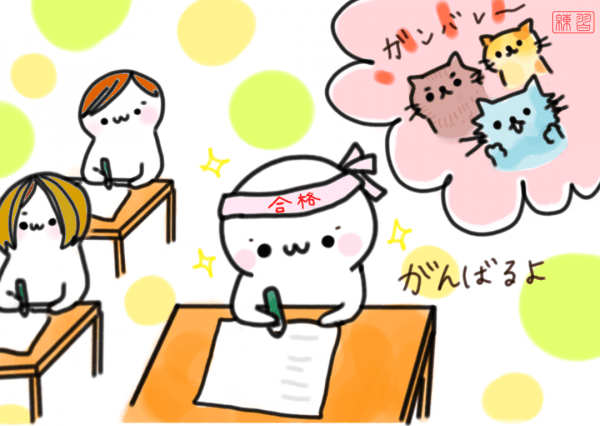I think A; Probably A
- I think A; Probably A
- Don't you think A?; A, right? This is the meaning when read as a question (with a rising inflection on the end). Asks for confirmation from the listener about A.
- I wonder if A; I was wondering if A Polite form of かな; used in requests.

きっと合格するでしょう。
I think you'll surely pass (the test).
13
もし万一外国へ行くとすれば、フランスにするでしょう。
If I happen to end up going abroad I'd probably go for France.
19
多分彼らは車で来るでしょう。
Probably they will come by car.
17
多分彼はまもなく来るでしょう。
Probably he will come soon.
Getting the sentences
Construction
(Elements in parentheses are optional.)
Related Expressions
だろう
Where this grammar is found
User notes
火曜
Level: 34
(9 years ago)
1. でしょう / だろう is used when you are guessing or proposing something which is not based on any particular information or evidence.
2. When used with たぶん your conjecture sounds more certain ("most probably..."). When used with きっと, even more certain (I'm almost certain...).
2. When used with たぶん your conjecture sounds more certain ("most probably..."). When used with きっと, even more certain (I'm almost certain...).
0
モモ姫
Level: 1
(13 years ago)
~でしょう typically implies you have some knowledge to back up your information.
11
Don't you think A?; A, right?
This is the meaning when read as a question (with a rising inflection on the end). Asks for confirmation from the listener about A.
- I think A; Probably A
- Don't you think A?; A, right? This is the meaning when read as a question (with a rising inflection on the end). Asks for confirmation from the listener about A.
- I wonder if A; I was wondering if A Polite form of かな; used in requests.
11
彼女の演奏、素晴らしいでしょう?
Her performance was wonderful, don't you think?
8
どうして一緒じゃないの、道子を迎えに行ったんでしょう?
Why aren't you together, you went out to meet Michiko, right?
8
中川君の家なら、10人くらい集まっても大丈夫でしょ?
If it's Mr. Nakagawa's house, around ten people can get together (fit), don't you think?
Getting the sentences
Construction
(Elements in parentheses are optional.)
Related Expressions
だろう
Where this grammar is found
User notes
I wonder if A; I was wondering if A
Polite form of かな; used in requests.
- I think A; Probably A
- Don't you think A?; A, right? This is the meaning when read as a question (with a rising inflection on the end). Asks for confirmation from the listener about A.
- I wonder if A; I was wondering if A Polite form of かな; used in requests.
19
来週休みを取ってもよろしいでしょうか。
I was wondering, could I take my vacation next week?
15
車に乗せていただけないでしょうか。
I was wondering if you could give me a lift?
10
あなたからの最新のメールがみつかりません。再送していただけるでしょうか。
I can't seem to find your last email, I wonder if you can resend it to me?
12
2、3日お車をお貸しいただけないでしょうか。
I wonder if you would mind lending me your car for a couple of days?
Getting the sentences
Construction
(Elements in parentheses are optional.)
Where this grammar is found
User notes
mysticfive
Level: 1606
(13 years ago)
this pattern is often used with words like 宜しい (宜しいでしょうか - is it ok/all right),いかが(いかがでしょう - how about),and どう (どうでしょう - how about)
10
モモ姫
Level: 1
(13 years ago)
For this meaning, it is best if you add "か" to the end of でしょう. It will give your sentence an inflection, which begs a "question" versus "I'm telling you ____".
10
Discussion about this grammar